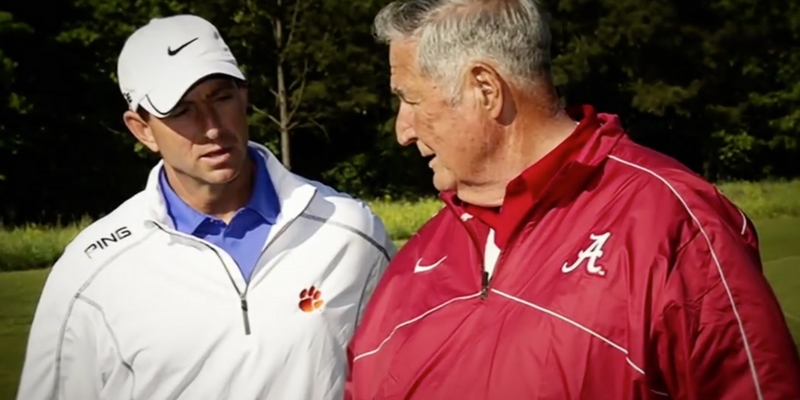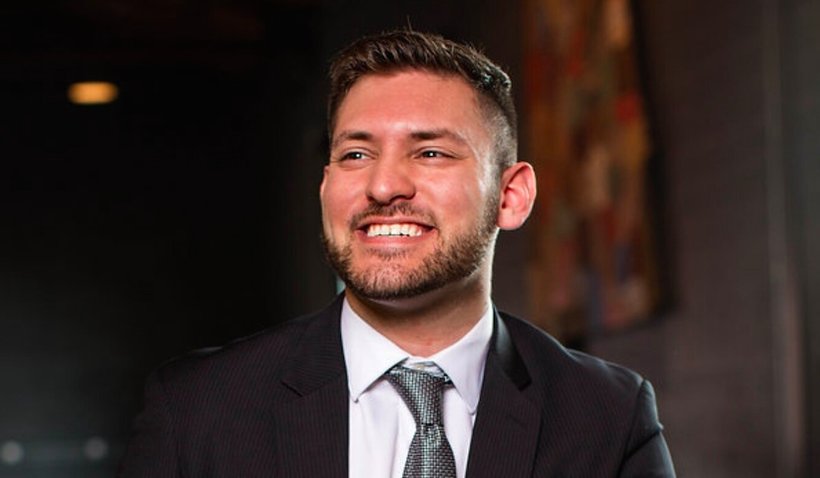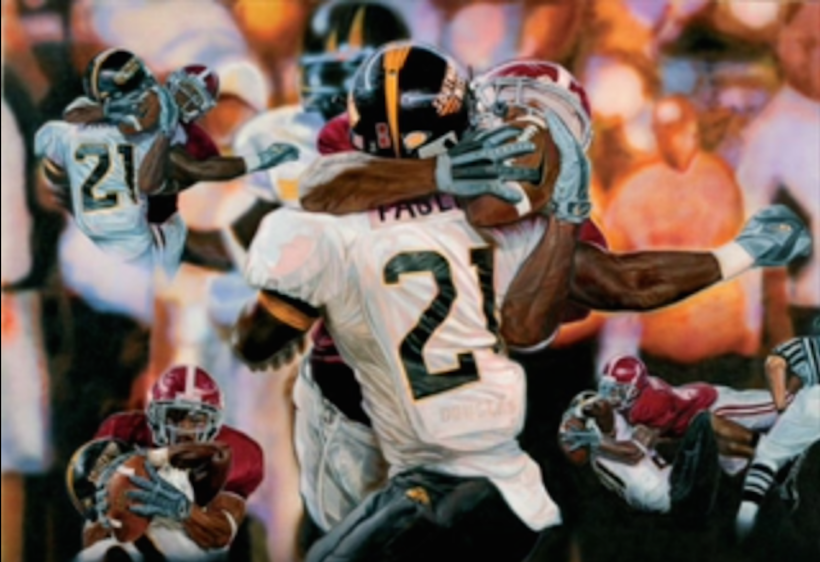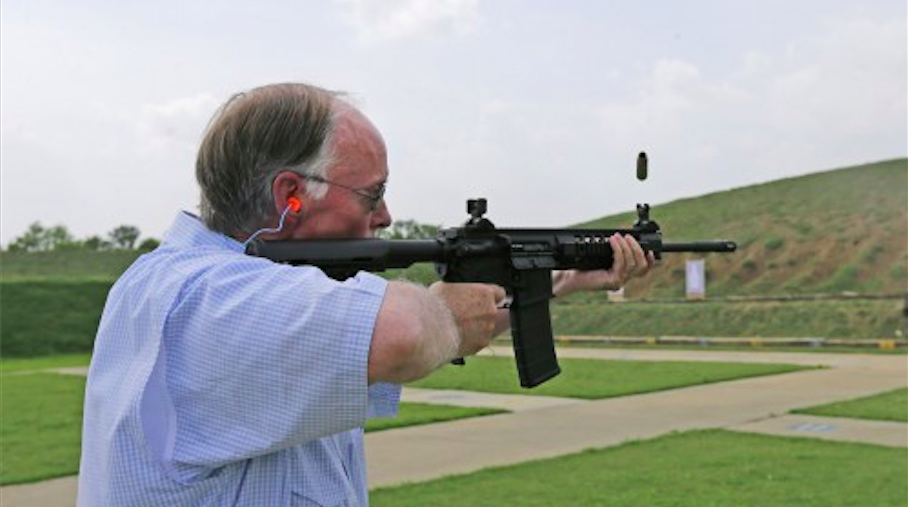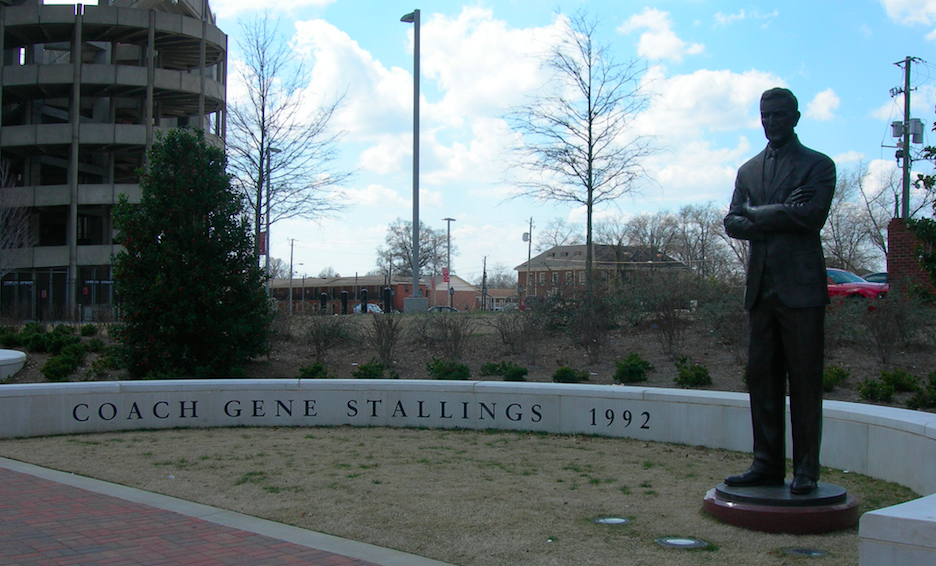
David Palmer, known simply as “The Deuce” to Alabama fans, won a national championship as the Tide’s one-man highlight reel in 1992, before being drafted in the second round of the NFL Draft by the Minnesota Vikings and playing seven seasons in the Metrodome.
But in recent years, Palmer has stayed quietly out of the spotlight, living a low-key life in the Ensley neighborhood of Birmingham, Alabama, where he grew up.
Palmer’s rise to stardom was filled with obstacles. He was the son of a single mother and the father of three children before he graduated high school. But his hard work and dedication to the game of football brought college coaches from around the country into his rough-and-tumble neighborhood on recruiting trips.
He ultimately chose to play college ball at Alabama, rather than Florida State, because then-FSU coach Bobby Bowden said he would likely redshirt, while then-Alabama coach Gene Stallings expected to put him on the field immediately.
It did not take long for Palmer’s flashy style to standout in Alabama’s otherwise business-like offense.
In his freshman year he racked up over 1,100 yards of total offense and 7 touchdowns, but the Tide fell just short of a title, finishing 11-1 on the season. The following year, the 100th in Alabama’s fabled history on the gridiron, saw Palmer and the Tide reach the promised land: a National Championship.
But as Palmer’s on-the-field exploits garnered praise, his off-the-field struggles returned.
Palmer was arrested twice during the 1992 season on DUI charges, putting his future in jeopardy.
“I couldn’t handle success,” Palmer says now in a fascinating profile in 78 Magazine. “I didn’t know what it meant to be a top athlete at UA, that people were going to watch whatever I did. I was there to play football. I didn’t think that people were watching me when I went out in public.”
It was then that Palmer realized he not only had a great coach in Stallings, but the father-figure he never had.
Rather than kicking Palmer to the curb, Stallings took the troubled young man under his wing.
“I really think, in David’s career right now, he needs us,” Stallings told the Orlando Sentinel at the time. “He needs me, and I’m not going to turn my back on him. In all my coaching career, I don’t believe I’ve coached a player as gifted and talented as David. I think he’s got a problem… we’ve got to help him overcome.”
Stallings did not let him off the hook completely; he suspended him for three games and put new accountability measures in place. But he stuck to his word and did not give up on Palmer, even under pressure.
“If it weren’t for him, my career might have been over,” Palmer told 78 Mag. “People wanted to give up on me, but Coach Stallings wouldn’t let that happen. The whole thing cost me a whole lot, caused me a lot of off-the-field stress. But I owe a lot of my success to Gene Stallings.”
After retiring from the NFL in 2000, Palmer now spends much of his time volunteering in the community, particularly with Down syndrome children. Coach Stallings late son, John Mark, had Down syndrome, and the coach’s love for his boy clearly rubbed off on Palmer.
“I got to spend a lot of time with Coach Stallings’ son, John Mark, and ever since then I fell in love with kids,” Palmer said. “I’m blessed to work with them. I try to help them in any way I can.”
And he has some advice for young players, too.
“Watch your environment,” he says. “It will carry you a long way. Keep your nose clean. Listen to your parents, teachers, and coaches. They are teaching you things you need to know for your future. And keep God first, keep God first.”
Coach Stallings’ commitment to giving troubled kids second chances continues on at Alabama today under Coach Nick Saban.
“It’s really, really good for me and I think for some of our administrators around here who, our President, who shakes hands with all of our players when they walk across the stage and graduate, when we give somebody a second chance and they do well and graduate from school,” Saban said last year. “There’s always a lot of criticism out there when somebody does something wrong, everybody wants to know how you’re going to punish the guy. There’s not enough for 19 and 20-year-old kids, people out there saying, ‘Why don’t you give them another chance?’”
Check out the full David Palmer profile over at 78 Magazine.






